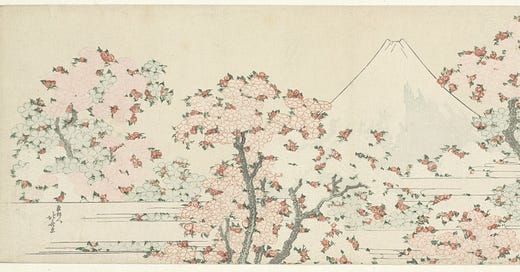As a rule, I like talking to strangers. But then again, something about this woman was oddly familiar. We met in a vet’s waiting room. I put her at late sixties (she was actually in her mid-80s) and she wore a cardigan dotted with hairs from her cat whose surgery she was anxiously waiting to end. When I arrived, she began talking to me as if we had been cut off mid-flow, and were just picking up again. There was something in the flavour of her, something charming and twinkly, funny and performative, something old-fashioned and courtly, that I instantly recognised.
I grew up around actors. Both my parents worked in the theatre, and actors populated my childhood. They bestowed their beaming smiles on me, showed me their magic tricks and fake punches, did silly voices and let me look at their wondrous costumes. I instantly recognised this stranger as one of their breed. And I was right. It turned out, she even knew my parents. Chatting to her, I felt a sense of belonging. Like I imagine it must be for people who grew up in very small towns with their own lore and language, to go back and visit as an adult.
As I drove home, I felt warmed by the chance encounter. But I also felt a little melancholy. Something ached, but I couldn’t understand why. The feeling slowly began to develop like a photograph, and it became clearer to me that what I felt was loss, or at least, a premonition of loss. At some point, certainly sooner than I would want, that generation of actors would be gone. I wouldn’t ever bump into someone quite like that woman again.
I am often asked if I know the word for this or that feeling. I have written and spoken extensively about the different languages we use to think about emotions. I am interested in emotional languages because I care how our cultures act on our inner worlds, and am convinced language helps us see this connection. I might be more fluent than some, but like anyone, I often find myself experiencing feelings I am not sure how to name.
Psychologists sometimes use the phrase ‘anticipatory nostalgia’ to describe what I was experiencing on my way home from the vet’s. ‘Anticipatory nostalgia’ is defined as ‘missing the present before it has gone’. Put like this, it seems a rather thin feeling. Not only is the phrase inelegant, it also seems troubling, even self-defeating. One study from Le Moyne College, Syracuse found that while nostalgia is correlated with ‘favourable affect and reactions’, such as feeling more connected and socially embedded, ‘anticipatory nostalgia’ is ‘aligned with thinking of the future, emotional distancing, difficulty enjoying the present, and a greater tendency to sadness and worry’. The takeaway? Be in the moment. Don’t worry about the fact it will end.
Yet many languages do honour our capacity to simultaneously cherish something and mourn its fleeting impermanence. In Welsh, the word Hiraeth describes a deep connection to one’s homeland, tinged with grief for an irretrievably lost world. Perhaps it is the Welsh people’s long history of occupation by the English that has made it necessary to find a word that captures both the love of home, and the feeling that its safety might at any moment be ripped away.
As humans, we experience many apparently contradictory feelings at once; only the most unimaginative amount of our emotional lives would try to flatten this out. The people of Ifaluk, who live on a tiny coral atoll in the Pacific, speak of Fago.1 This concept describes a powerful desire to care for someone, yet is also haunted by a strong sense that one day that person will die. It combines tenderness with a sense of the fragility of existence, compassion with grief. The Japanese concept Mono no aware describes the beauty of life’s transience. A wistful feeling, mono no aware is sometimes described as a ‘sigh for the impermanence of life’. These words recognise the bittersweet combination of connection and loss. The feeling is elevated by being named, and taken seriously as part of life’s richness.
As I drove back from the vet’s, I wondered why I was struggling to locate a word for this combination of feelings in English, and why the rather clumsy ‘anticipatory nostalgia’ is the only phrase that came to mind. Have English-speakers learnt over generations to avert our gaze from this feeling? Is there something unspeakable about grieving what has not yet been lost? Does it seem ungrateful, even foolhardy, to indulge? Yet not knowing how to speak of something does not mean you do not feel it. Sometimes it takes an unfamiliar word to help articulate a familiar feeling. Sometimes it takes a stranger to show you something you didn’t realise you already felt.
Catherine Lutz first introduced the concept of Fago to English-speakers in her book Unnatural Emotions.





